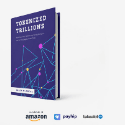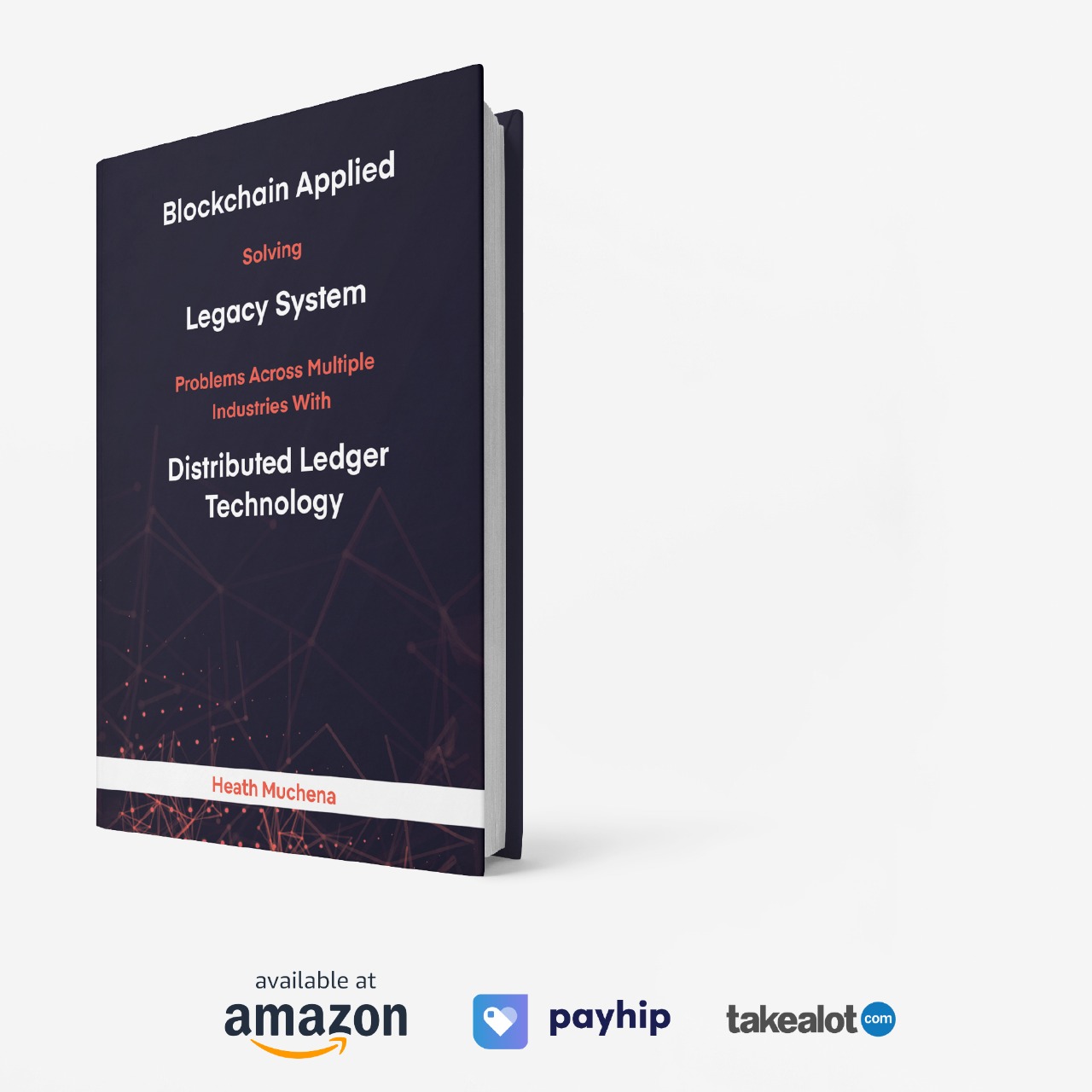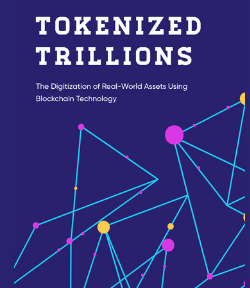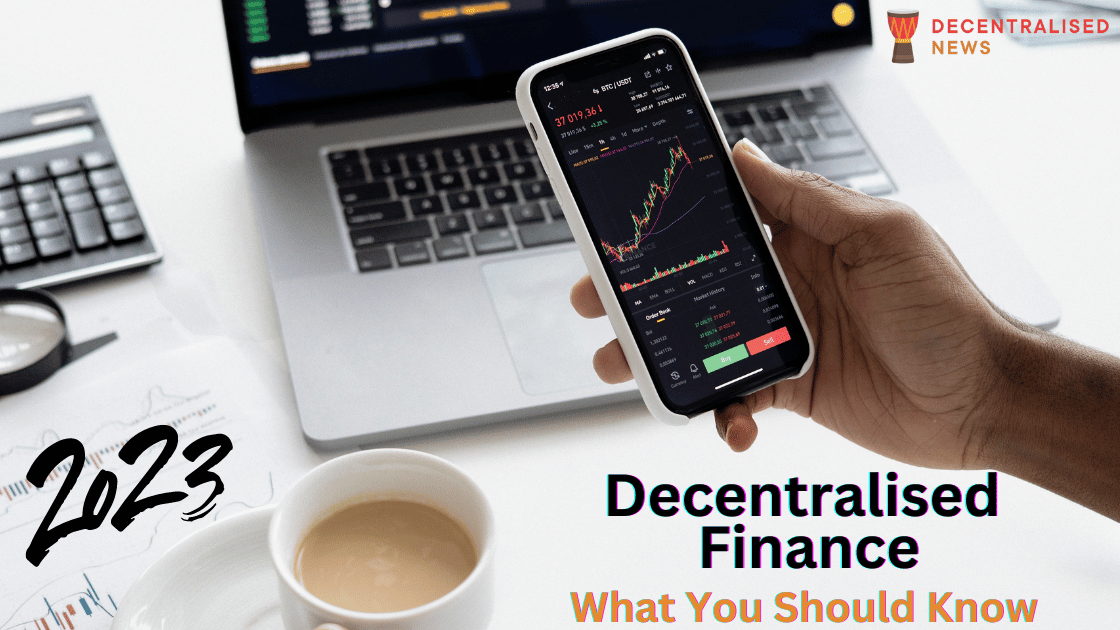
Decentralized Finance: What You Should Know in 2023
Decentralized Finance (DeFi) – 2023 Comprehensive Guide.
What is Decentralised Finance (DeFi)?
Decentralized finance (DeFi) refers to the use of blockchain technology and cryptocurrency to create financial applications that are decentralized and operate without the need for intermediaries such as banks. DeFi applications are designed to be open, transparent, and accessible to anyone with an internet connection. They can be used for a variety of financial activities, such as borrowing and lending, trading, and payments. DeFi has the potential to revolutionize the financial industry by making it more inclusive and efficient.
What is the difference between Decentralised Finance (DeFi) and Traditional Finance (TradeFi)?
There are several key differences between decentralized finance (DeFi) and traditional finance:
- Centralization vs. Decentralization: Traditional finance relies on intermediaries, such as banks, to facilitate financial transactions. DeFi, on the other hand, uses blockchain technology to enable peer-to-peer transactions without the need for intermediaries.
- Accessibility: DeFi is designed to be accessible to anyone with an internet connection, whereas traditional finance is often restricted to certain geographic regions or requires certain qualifications or approvals.
- Transparency: DeFi transactions are recorded on a public blockchain, making them transparent and verifiable. Traditional finance is often opaque and can be difficult to track.
- Speed: DeFi transactions can be processed quickly, often in a matter of minutes. Traditional finance can be slower, with some transactions taking days to clear.
- Censorship Resistance: DeFi transactions are decentralized and cannot be censored by any single entity. Traditional finance can be subject to censorship by governments or other intermediaries.
What are the potential use cases of Decentralized Finance?
There are many potential use cases for decentralized finance (DeFi), including:
- Borrowing and lending: DeFi platforms allow users to borrow and lend cryptocurrency and other digital assets directly, without the need for a bank or other financial institution.
- Trading: DeFi platforms can provide access to a wide range of cryptocurrency and other digital asset trading pairs, often at lower fees than traditional exchanges.
- Payments: DeFi platforms can be used to facilitate fast, cheap, and secure payments using cryptocurrency or other digital assets.
- Remittances: DeFi can be used to send cross-border payments quickly and at low cost, making it useful for remittance services.
- Identity verification: DeFi platforms can be used to verify the identity of users in a decentralized manner, without the need for a central authority.
- Supply chain finance: DeFi can be used to automate and streamline the financing of supply chains, making it easier for businesses to access the capital they need.
- Crowdfunding: DeFi platforms can be used to raise capital for projects through crowdfunding campaigns.
- Insurance: DeFi platforms can be used to create decentralized insurance products that are transparent and verifiable.
- Predictive markets: DeFi can be used to create decentralized platforms for predictive markets, which allow users to buy and sell the outcome of events.
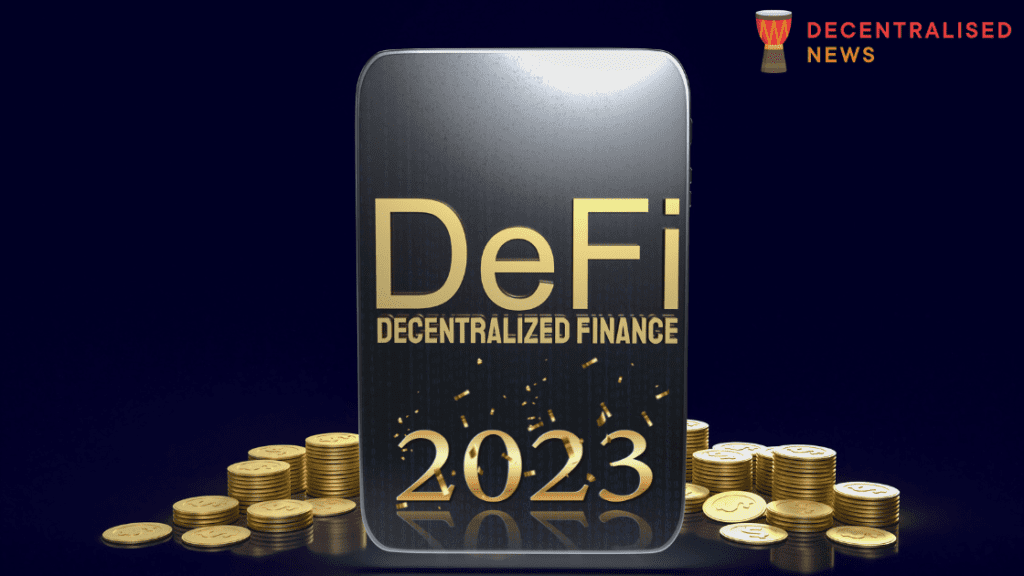
How Decentralized Finance (DeFi) changes economies
Decentralized finance (DeFi) has the potential to change how economies work in several ways:
- Increased financial inclusion: DeFi can provide access to financial services to those who may not have access to traditional financial institutions, such as those living in underbanked or unbanked regions.
- Increased efficiency: DeFi platforms can operate faster and at lower cost than traditional financial institutions, due to their decentralized nature and the use of automation. This can lead to more efficient financial markets and a more efficient allocation of capital.
- Increased transparency: DeFi platforms are built on blockchain technology, which provides a transparent and immutable record of transactions. This can increase transparency in the financial system and reduce the potential for fraud or corruption.
- Increased access to alternative investment opportunities: DeFi platforms can provide access to a wider range of investment opportunities, such as cryptocurrency and other digital assets, which may not be available through traditional financial institutions.
- Reduced reliance on traditional financial institutions: DeFi can provide an alternative to traditional financial institutions, which can reduce the dependence of individuals and businesses on these institutions. This can increase competition and lead to more choice and better services for consumers.
Top DeFi ecosystems
There are many popular decentralized finance (DeFi) projects, products, and ecosystems, some of which include:
- Ethereum: Ethereum used to be a decentralized platform that runs smart contracts: applications that run exactly as programmed without any possibility of downtime, censorship, fraud or third-party interference. Ethereum is used as the underlying blockchain for many DeFi applications.
- Uniswap: Uniswap is a decentralized exchange built on Ethereum that allows users to swap ERC-20 tokens. It is one of the most popular DeFi applications, with a significant portion of DeFi trading volume taking place on the platform.
- Compound: Compound is a decentralized lending platform built on Ethereum that allows users to earn interest on their cryptocurrency holdings by lending them out or to borrow cryptocurrency from others.
- MakerDAO: MakerDAO is a decentralized platform that issues stablecoins (cryptocurrencies pegged to the value of real-world assets, such as the US dollar) and enables users to lend and borrow these stablecoins.
- Aave: Aave is a decentralized lending platform built on Ethereum that allows users to lend and borrow a variety of cryptocurrency assets.
- Bancor: Bancor is a decentralized exchange that allows users to convert between different ERC-20 tokens without the need for an order book.
- Chainlink: Chainlink is a decentralized oracle network that allows smart contracts to securely access off-chain data and services.
- Synthetix: Synthetix is a decentralized platform that allows users to trade synthetic assets, which are digital assets that represent the value of real-world assets.
- Balancer: Balancer is a decentralized exchange and liquidity protocol that allows users to trade and provide liquidity to multiple assets at once.
- 0x: 0x is a decentralized exchange protocol that allows users to build their own decentralized exchanges on top of it.
It is difficult to determine which decentralized finance (DeFi) projects are the most decentralized, as decentralization can be a subjective concept. Some DeFi projects may be more decentralized in certain aspects, such as their governance or consensus mechanisms, while others may be more decentralized in terms of their user base or geographic distribution.
That being said, some DeFi projects that are often cited as being highly decentralized include Bitcoin, and Monero. Ethereum used to be a decentralized platform that runs smart contracts and it is still the underlying blockchain for many DeFi applications although it is arguably no longer decentralized since transitioning from Proof of Work to Proof of Stake. Bitcoin is a decentralized cryptocurrency that is secured by a distributed network of miners. Monero is a decentralized cryptocurrency that uses cryptography to protect the privacy of transactions.

What careers can you have in Decentralised Finance?
There are many career opportunities in decentralized finance (DeFi), including:
- DeFi developer: DeFi developers build decentralized financial applications and protocols using blockchain technology. They may work on creating new DeFi platforms or building on existing ones.
- DeFi product manager: DeFi product managers are responsible for defining and executing the product roadmap for a DeFi platform. They work closely with developers, designers, and other stakeholders to bring new products and features to market.
- DeFi designer: DeFi designers create the visual and user experience design for DeFi platforms and applications. They work to create user interfaces that are intuitive and easy to use.
- DeFi marketer: DeFi marketers are responsible for promoting DeFi platforms and applications to potential users and stakeholders. They may use a variety of marketing channels, such as social media, content marketing, and events, to reach their audience.
- DeFi researcher: DeFi researchers study and analyze the DeFi ecosystem, including trends, technologies, and market conditions. They may work for research firms, think tanks, or DeFi platforms.
- DeFi community manager: DeFi community managers are responsible for building and maintaining relationships with the community of users and stakeholders of a DeFi platform. They may work on outreach programs, events, and other initiatives to engage the community.
- DeFi consultant: DeFi consultants provide advice and guidance to businesses and organizations looking to enter the DeFi space. They may help clients understand the DeFi ecosystem, develop strategies, and identify opportunities.
- DeFi journalist: DeFi journalists report on and cover the DeFi ecosystem, including news, trends, and analysis. They may work for media outlets, blogs, or research firms.
- DeFi lawyer: DeFi lawyers advise clients on the legal aspects of DeFi, including regulatory compliance, contract drafting, and dispute resolution. They may work for law firms or in-house at DeFi platforms.
Popular Decentralised Finance (DeFi) cryptocurrencies or tokens
It is difficult to identify the top decentralized finance (DeFi) cryptocurrencies or tokens by a single metric, as different DeFi projects may excel in different areas. Here are DeFi projects that are often cited as being popular or influential:
- Bitcoin (BTC): Bitcoin is a decentralized cryptocurrency that is secured by a distributed network of miners. It is often used as a store of value and a hedge against inflation.
- Chainlink (LINK): Chainlink is a decentralized oracle network that allows smart contracts to securely access off-chain data and services.
- Uniswap (UNI): Uniswap is a decentralized exchange built on Ethereum that allows users to swap ERC-20 tokens.
- Maker (MKR): Maker is a decentralized platform that issues stablecoins and enables users to lend and borrow these stablecoins.
- Compound (COMP): Compound is a decentralized lending platform built on Ethereum that allows users to earn interest on their cryptocurrency holdings by lending them out or to borrow cryptocurrency from others.
- Aave (AAVE): Aave is a decentralized lending platform built on Ethereum that allows users to lend and borrow a variety of cryptocurrency assets.
- Synthetix (SNX): Synthetix is a decentralized platform that allows users to trade synthetic assets, which are digital assets that represent the value of real-world assets.
- Bancor (BNT): Bancor is a decentralized exchange that allows users to convert between different ERC-20 tokens without the need for an order book.
- Balancer (BAL): Balancer is a decentralized exchange and liquidity protocol that allows users to trade and provide liquidity to multiple assets at once.
- 0x (ZRX): 0x is a decentralized exchange protocol that allows users to build their own decentralized exchanges on top of it.
- yearn.finance (YFI): yearn.finance is a decentralized platform that provides yield farming and liquidity services to users.
- Ocean Protocol (OCEAN): Ocean Protocol is a decentralized data exchange platform that enables the sharing of data while preserving privacy and security.
